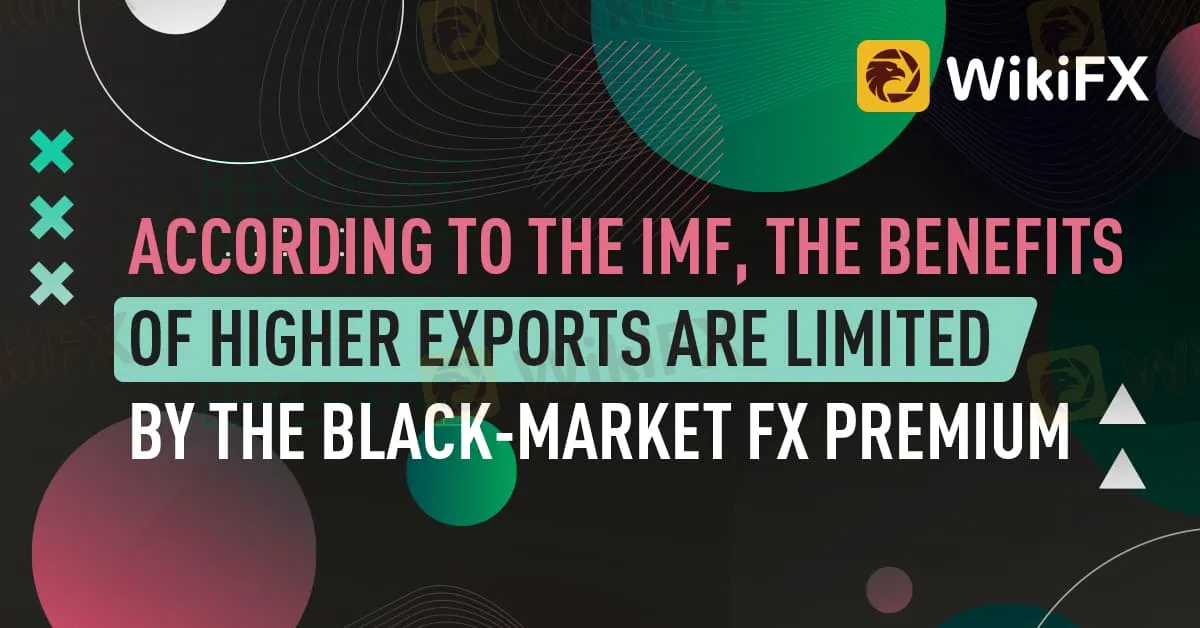简体中文
繁體中文
English
Pусский
日本語
ภาษาไทย
Tiếng Việt
Bahasa Indonesia
Español
हिन्दी
Filippiiniläinen
Français
Deutsch
Português
Türkçe
한국어
العربية
ACCORDING TO THE IMF, THE BENEFITS OF HIGHER EXPORTS ARE LIMITED BY THE BLACK-MARKET FX PREMIUM.
Abstract:According to the International Monetary Fund (IMF), improved trade balance is having a minimal impact on Foreign Exchange (FX) pressures, with parallel market exchange rate premiums remaining in the 35-40 percent level since October 2021

According to the International Monetary Fund (IMF), improved trade balance is having a minimal impact on Foreign Exchange (FX) pressures, with parallel market exchange rate premiums remaining in the 35-40 percent level since October 2021.
This was revealed at IMF staff talks with Nigerian officials from June 6-10, 2022, to examine recent economic and financial events as well as the country's economic prospects.
At the Investors and Exporters (I&E) window yesterday, the naira/US dollar exchange rate closed at N420/$1. According to BDC operators, the illicit market retains a significant premium, closing at N607/$1.
According to the IMF, real GDP growth is spreading to all sectors except oil, although inflation remains high. The foreign lenders also stated that the economic outlook is tough, with rising food prices generating worries about food security.
WHAT THE IMF HAS TO SAY
“In terms of the external sector, the current account deficit shrank dramatically in 2021, thanks to lower imports and a stronger net oil balance.” However, the improved trade balance, which has persisted in 2022, is having a minimal influence on Foreign Exchange (FX) constraints, with parallel market exchange rate premiums remaining in the 35-40% level since October 2021. Despite low oil prices, total foreign exchange reserves declined to $38.6 billion at the end of May 2022, from $41.5 billion in September 2021, thanks to SDR distribution and Eurobond issuance. According to the IMF
International lenders also commented on Nigeria's inflationary concerns and the response of the Central Bank of Nigeria. “Inflation has reached 17.7 percent (y/y) in May, led by a further increase in food costs, aggravated by the crisis in Ukraine, and heightening food security worries since more than 40 percent of the population lives below the poverty line,” according to the IMF. The Central Bank of Nigeria recently increased its monetary policy rate by 150 basis points to 13 percent in order to manage inflationary pressures.
According to the IMF, the economic recovery is strengthening on the basis of services and agriculture, with GDP growth reaching 3.6 percent (y/y) in Q1 2022.
WHAT YOU SHOULD BE AWARE OF
· Nigeria's international trade increased to N13 trillion in the first quarter of 2022, up 11.1 percent from N11.7 trillion in the previous quarter and 65.4 percent from N7.86 trillion in Q1 2021. This is according to the National Bureau of Statistics' recently issued international trade report for the first quarter of 2022. (NBS).
· Total imports in Q1 2022 was N5.9 trillion, a 0.67 percent decrease from Q4 2021 (N5.94 trillion), but a 21.04 percent increase over the same time in 2021. (N4.88 trillion).
· Nigeria's export income in the first quarter of 2022 was N7.1 trillion, an increase of 23.1 percent and 137.9 percent over the first and fourth quarters of 2021, respectively.
· Despite decreased crude oil output, the significant increase in crude oil prices has allowed Nigeria to enhance its crude export profits. Crude oil revenues, for example, climbed 175 percent year on year to N5.62 trillion in Q1 2021, up from N2.04 trillion in Q1 2021.
· Crude oil export revenues accounted for 79.16 percent of total export profits in the period under review. As a consequence, Nigeria's trade balance improved in Q1 2022, with a foreign trade surplus of N1.12 trillion. Nigeria's trade surplus has reached its highest point since the third quarter of 2019.

Disclaimer:
The views in this article only represent the author's personal views, and do not constitute investment advice on this platform. This platform does not guarantee the accuracy, completeness and timeliness of the information in the article, and will not be liable for any loss caused by the use of or reliance on the information in the article.
Read more

Risk Involved with Cabana Capital – Every Trader Should Know
Cabana Capital has changed its name and logo, basically everything about its identity. This seems a bit suspicious, and it's something you should definitely be concerned about. In this article, you’ll learn about the red flags that every trader needs to watch out for.

CME International Records a Massive Jump in Forex Volumes
CME International recorded a record surge in its foreign exchange trading volumes during the second quarter. Check out its performance across products and markets.

Scam Brokers Exposed! FCA Warns Traders to Stay Safe
If you are into forex trading, you need to protect your money from investment scams. Many scam brokers are active in the market now. The FCA, a reputed financial regulator, has issued a list of unlicensed brokers you need to stay away from.

IMF Warns of Global Risks as US Slaps 50% Tariffs on Import
The IMF warns of rising global uncertainty after the US imposes a 50% tariff on copper and Brazil imports. Factories worldwide brace for economic fallout.
WikiFX Broker
Latest News
US Government Interest Grows in Victory Metals’ Rare Earths Supply
How Are Trade Policies Affecting the Aluminum Market?
RM71,000 Lost in a Share Scheme That Never Existed
Scammed by a Click: He Lost RM300,000 in a Month
Manual vs. Automated Forex Trading: Which One Should You Choose?
Revealing Factors That Help Determine the Gold Price in India
Why Regulatory Compliance Is the Secret Ingredient to Trustworthy Forex Brokers
Pentagon to become largest shareholder in rare earth miner MP Materials; shares surge 40%
Delta shares jump 12% after airline reinstates 2025 profit outlook as CEO says bookings stabilized
Delta shares jump 13% after airline reinstates 2025 profit outlook as CEO says bookings stabilized
Currency Calculator


